Find Help
More Items From Ergsy search
-
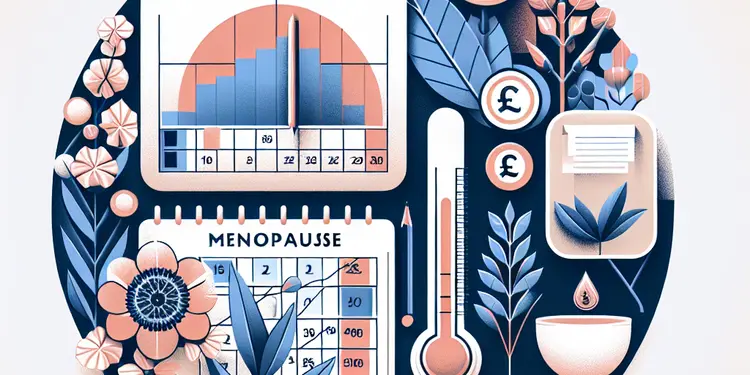
What is menopause?
Relevance: 100%
-
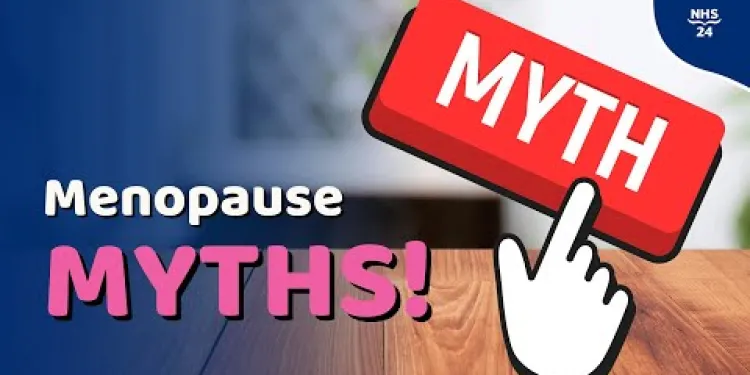
Menopause Myths
Relevance: 100%
-
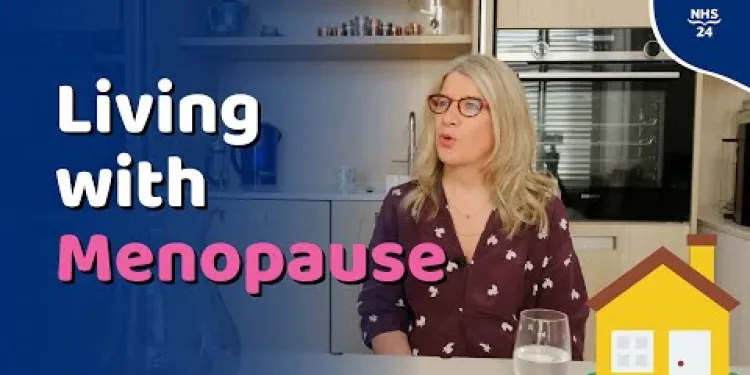
Living with the menopause
Relevance: 100%
-
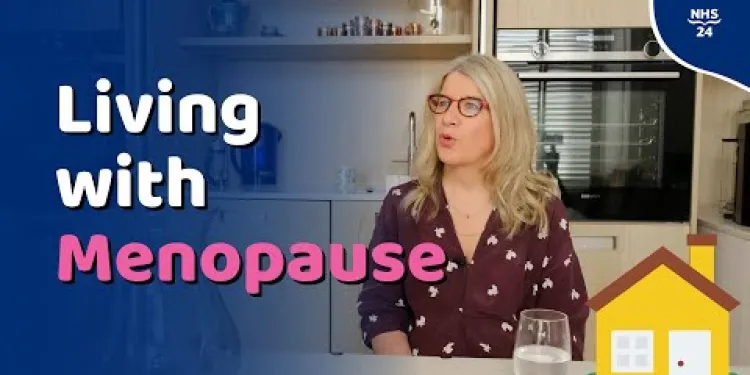
Living with the menopause
Relevance: 99%
-
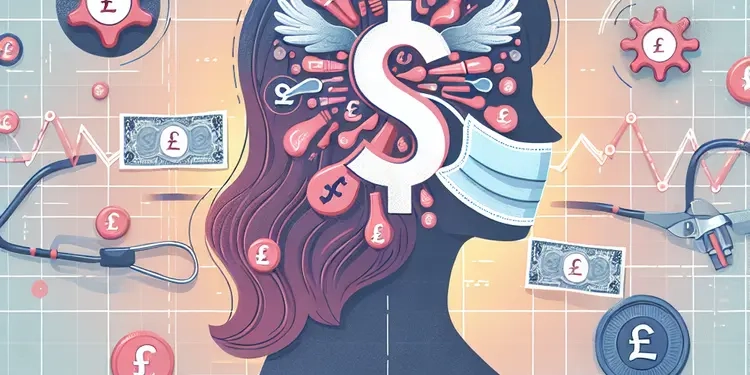
What is menopause masking?
Relevance: 96%
-

What is menopause masking?
Relevance: 96%
-
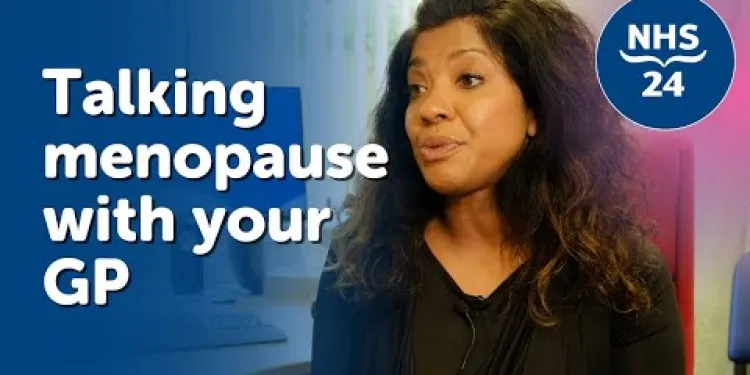
Talking menopause with your GP
Relevance: 93%
-
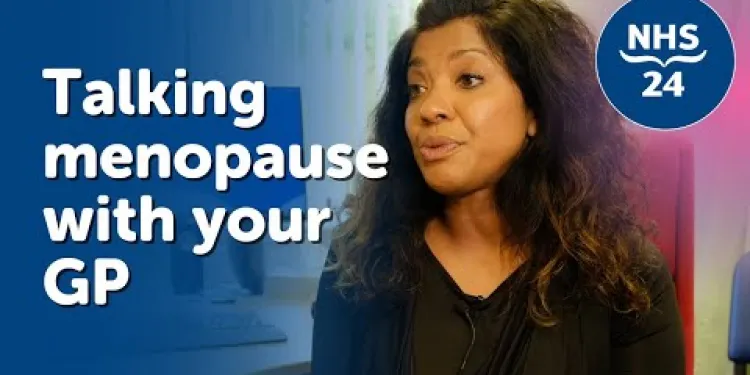
Talking menopause with your GP
Relevance: 93%
-

Is it possible to delay menopause naturally?
Relevance: 92%
-
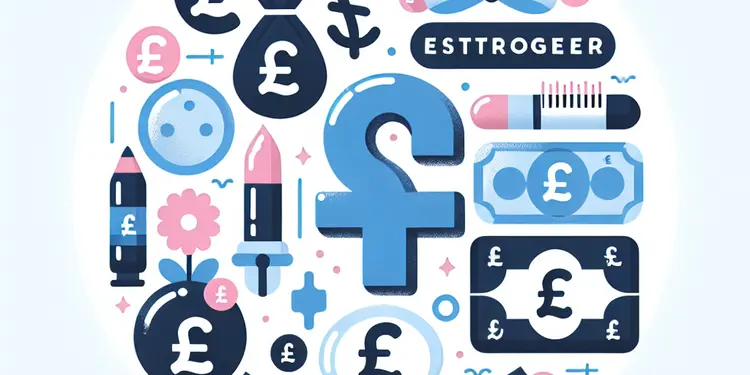
What is the role of estrogen in menopause?
Relevance: 91%
-
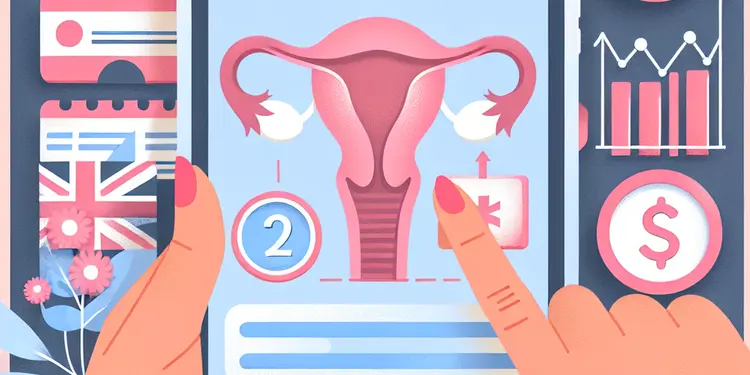
What are common symptoms of menopause?
Relevance: 91%
-

Are there natural remedies for menopause masking?
Relevance: 90%
-
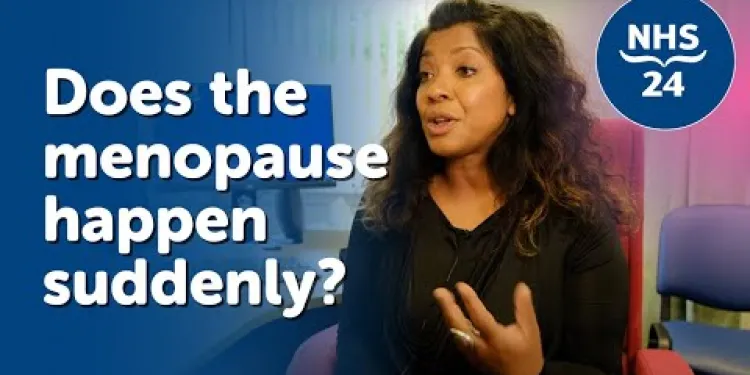
Does the menopause just happen suddenly?
Relevance: 89%
-
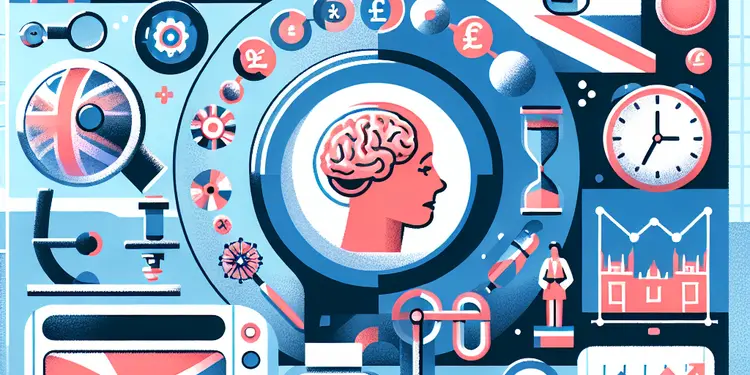
Is there scientific evidence linking menopause to dementia?
Relevance: 88%
-
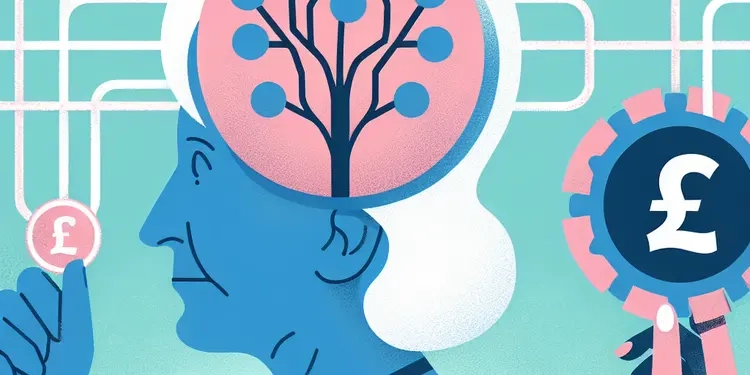
What are the links between menopause and dementia?
Relevance: 88%
-

Are there specific types of dementia linked to menopause?
Relevance: 88%
-
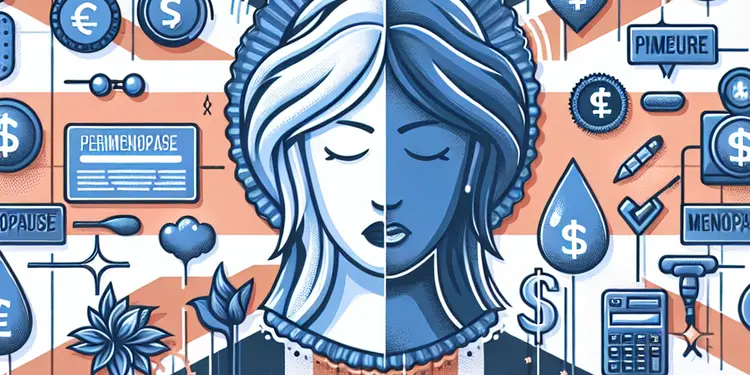
What is the difference between perimenopause and menopause?
Relevance: 87%
-

What treatments are available for menopause masking?
Relevance: 87%
-

Can acupuncture help with menopause masking?
Relevance: 87%
-

How long does menopause typically last?
Relevance: 86%
-
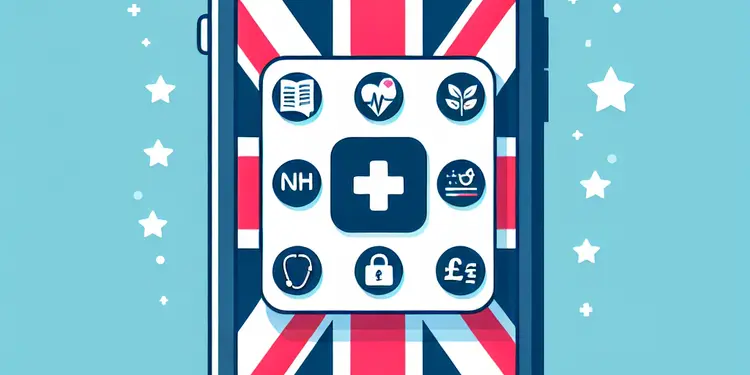
Are there any NHS apps for managing menopause symptoms?
Relevance: 86%
-
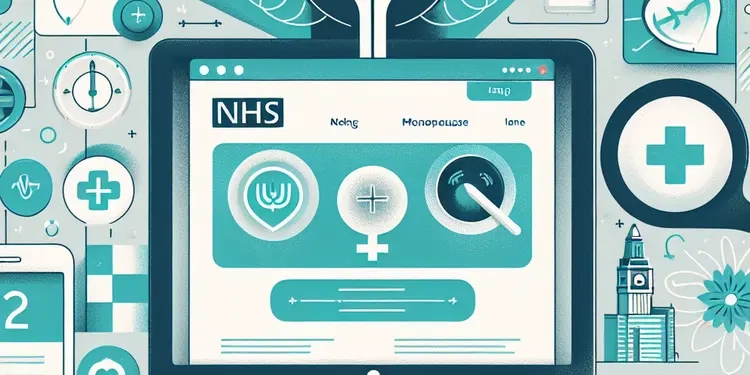
Does the NHS offer an online hospital for menopause?
Relevance: 86%
-
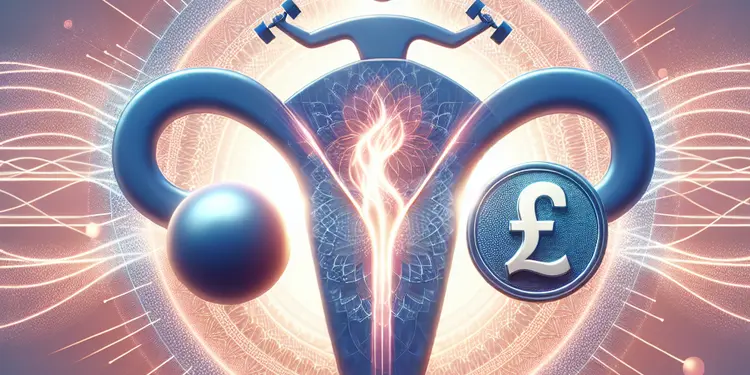
How does exercise impact menopause masking?
Relevance: 85%
-
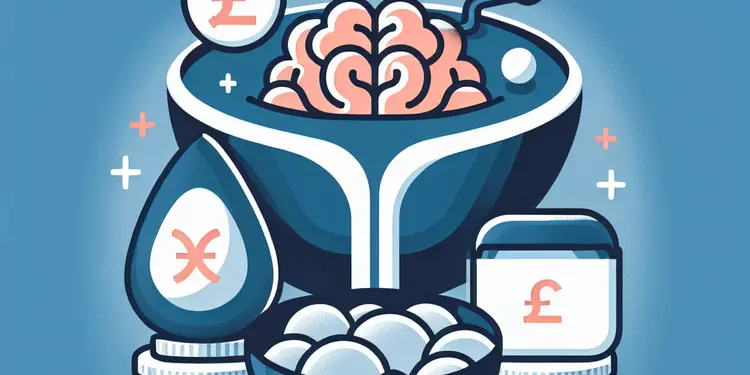
Is the age of menopause onset related to dementia risk?
Relevance: 85%
-
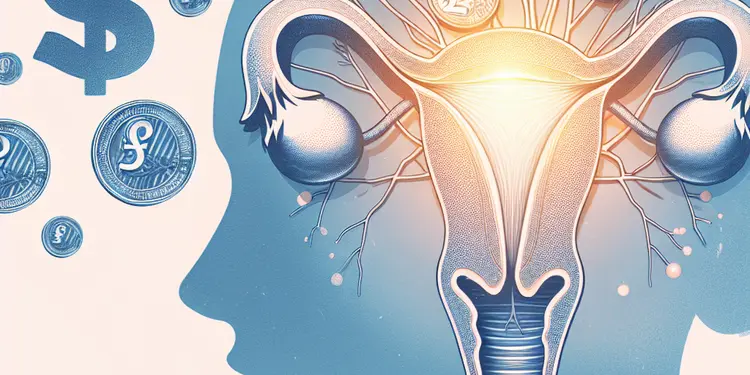
Can menopause affect bone health?
Relevance: 85%
-
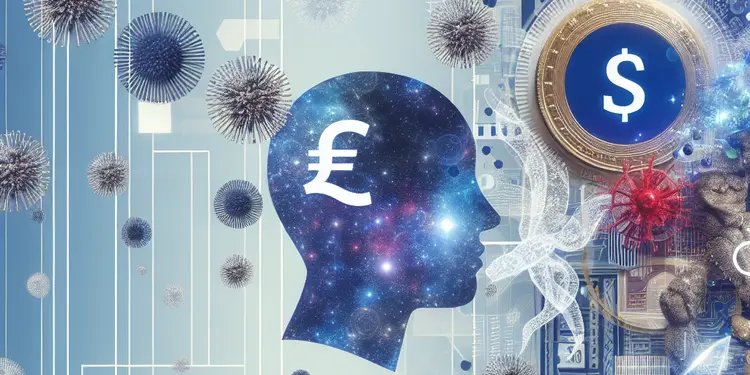
What psychological effects can menopause have?
Relevance: 85%
-
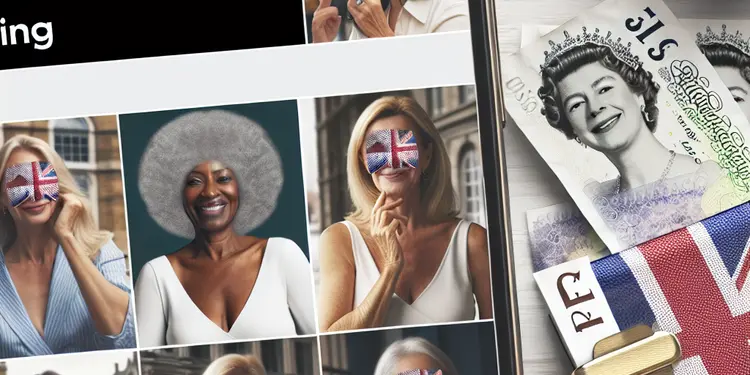
Why do some women use menopause masking?
Relevance: 85%
-

Can stress management aid in menopause masking?
Relevance: 85%
-

Does the NHS offer an online hospital for menopause?
Relevance: 85%
-

Are there psychological impacts of menopause that affect cognitive health?
Relevance: 85%
-

Can lifestyle changes help with menopause masking?
Relevance: 85%
-
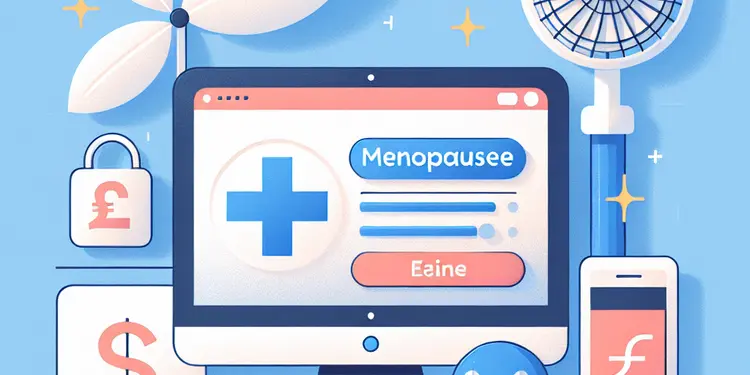
Does the NHS have an online symptom checker for menopause?
Relevance: 84%
-
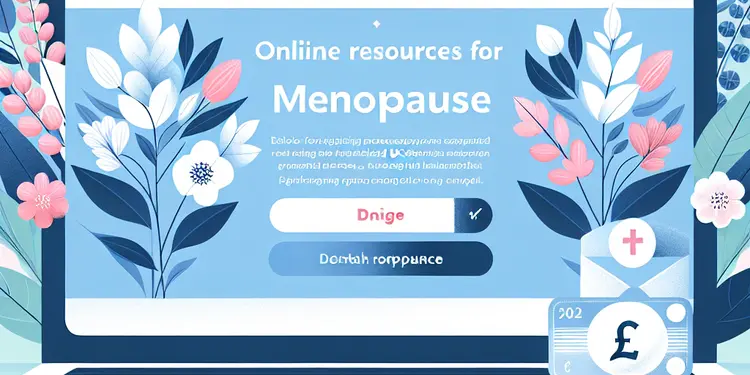
What online resources does the NHS offer for menopause?
Relevance: 83%
-

How does sleep quality relate to menopause symptoms?
Relevance: 83%
-

What further research is needed about menopause and dementia?
Relevance: 83%
-
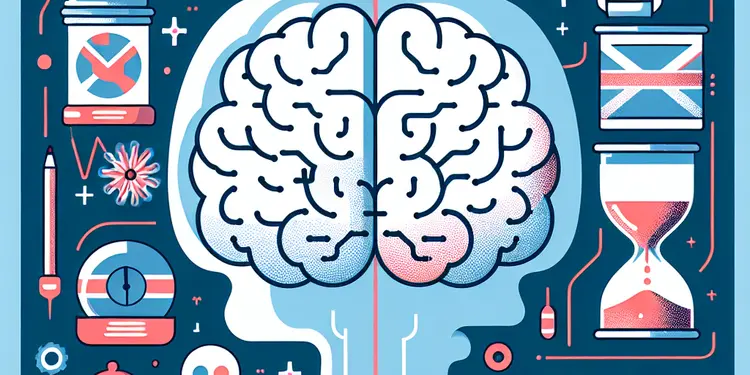
Do all women experience cognitive decline after menopause?
Relevance: 83%
-

What role does diet play in menopause masking?
Relevance: 83%
-
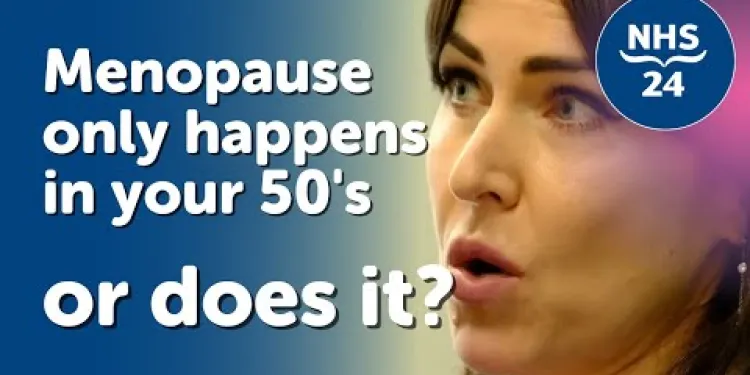
Does Menopause Only Happen in Your 50's? | NHS 24
Relevance: 82%
-

What are the signs of early cognitive decline related to menopause?
Relevance: 82%
-
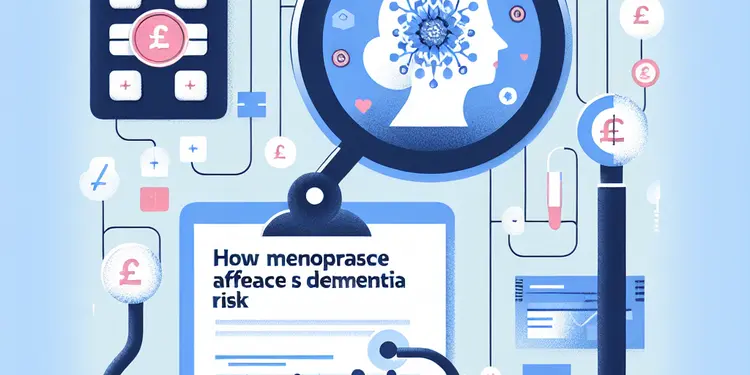
How does menopause potentially affect dementia risk?
Relevance: 82%
Does Menopause Only Happen in Your 50's? | NHS 24
Understanding Menopause
Menopause is a natural biological process that marks the end of a woman's menstrual cycles. It's diagnosed after you've gone 12 months without a menstrual period. Though it commonly occurs in your 50s, menopause can actually start in a range of ages, varying from one individual to another.
Common Age Range
In the United Kingdom, the average age for a woman to reach menopause is around 51. However, it's important to understand that menopause can begin earlier or later. Some women may experience menopause in their 40s, and this is often referred to as early menopause. In rarer cases, menopause can begin as early as in a woman's 30s, a condition known as premature menopause.
Factors Influencing Menopause Age
Several factors can influence the timing of menopause including genetics, health conditions, and lifestyle choices. For instance, women who smoke tend to reach menopause earlier than non-smokers. Medical treatments, such as chemotherapy or radiation therapy, and surgical procedures like oophorectomy (removal of ovaries) can also induce menopause at an earlier age.
Perimenopause: The Transition Phase
Before reaching menopause, women go through a transitional phase called perimenopause. This phase can start several years before menopause, often in a woman’s 40s or even earlier. During perimenopause, the ovaries gradually produce less estrogen, leading to irregular menstrual cycles and symptoms like hot flashes, night sweats, and mood changes.
Early and Premature Menopause
Early menopause occurs between ages 40 and 45, while premature menopause happens before the age of 40. Both conditions can result from genetic factors, autoimmune diseases, or medical interventions. If you suspect early or premature menopause, it's important to consult a healthcare provider for diagnosis and management.
When to Seek Medical Advice
If you experience symptoms of menopause significantly earlier than the average age, or if menopausal symptoms impact your quality of life, it is crucial to seek medical advice. Your GP can provide support and treatment options to manage symptoms effectively and address any concerns regarding early or premature menopause.
Conclusion
While menopause typically occurs in women in their 50s, it is not restricted to this age group. Understanding that menopause can begin in the 30s, 40s, or later allows for better preparedness and management of symptoms. Consulting with healthcare professionals can help navigate this significant phase of life.
Does Menopause Only Happen in Your 50's? | NHS 24
Understanding Menopause
Menopause is when a woman stops having her period for good. It usually happens after a woman has had no periods for 12 months in a row. Most women go through menopause in their 50s, but it can start earlier or later. This can be different for each woman.
Common Age Range
In the UK, most women have menopause around age 51. But, some might have it in their 40s. This is called early menopause. Rarely, menopause can start in the 30s. This is called premature menopause.
Factors Influencing Menopause Age
Many things can affect when menopause starts, like family history, health, and how you live. For example, women who smoke might have menopause earlier. Treatments like chemotherapy or surgery can also cause earlier menopause.
Perimenopause: The Transition Phase
Before menopause, there's a time called perimenopause. This phase may start years before menopause, often in a woman's 40s. During perimenopause, periods may become irregular, and you might have hot flashes, night sweats, and mood changes.
Early and Premature Menopause
Early menopause happens between ages 40 and 45. Premature menopause is before age 40. These can occur because of genetics, certain health issues, or medical treatments. If you think you have early or premature menopause, see a doctor.
When to Seek Medical Advice
See a doctor if you have menopause symptoms much earlier than usual or if the symptoms bother you a lot. Your doctor can help with treatment to make you feel better and handle symptoms.
Conclusion
Most women have menopause in their 50s, but it can happen in the 30s or 40s too. Knowing that menopause can start at different times helps you get ready and manage symptoms. Talk to healthcare professionals for support and guidance.
Frequently Asked Questions
Does menopause only happen in your 50s?
No, menopause can happen in your 40s or even earlier, although it most commonly occurs between the ages of 45 and 55.
What is menopause?
Menopause is the time in a woman's life when her menstrual periods stop permanently, and she can no longer become pregnant naturally.
What are the early signs of menopause?
Early signs of menopause can include irregular periods, hot flushes, night sweats, and mood changes.
Is menopause different from perimenopause?
Yes, perimenopause is the transition period leading up to menopause when hormonal changes start to occur, whereas menopause is marked by the end of menstrual periods.
Can menopause occur before age 40?
Yes, menopause can occur before age 40, which is known as premature menopause or premature ovarian insufficiency.
How do I know if I am in menopause?
You may be in menopause if you haven't had a menstrual period for 12 consecutive months and experience symptoms such as hot flushes and vaginal dryness.
What are common symptoms of menopause?
Common symptoms include hot flushes, night sweats, vaginal dryness, sleep disturbances, mood swings, and weight gain.
Can menopause symptoms be treated?
Yes, treatments like hormone replacement therapy (HRT), lifestyle changes, and medications can help manage menopause symptoms.
Is hormone replacement therapy (HRT) safe?
HRT can be safe for many women but has some risks. It's important to discuss the benefits and risks with your healthcare provider.
How long do menopause symptoms last?
Menopause symptoms can last for several years, but the duration varies from woman to woman.
Can lifestyle changes help with menopause symptoms?
Yes, maintaining a healthy diet, regular exercise, and stress management can help alleviate some symptoms.
Should I see a doctor about menopause symptoms?
Yes, it's a good idea to see a doctor if you're experiencing menopause symptoms to discuss treatment options and manage any health concerns.
Is it normal to feel depressed during menopause?
Yes, hormonal changes during menopause can affect mood, leading to feelings of depression or anxiety. It's important to seek support if these feelings are overwhelming.
Can I still get pregnant during perimenopause?
Yes, you can still get pregnant during perimenopause if you are still having periods, even if they are irregular.
What should I do if I experience severe menopause symptoms?
If you experience severe menopause symptoms, it's important to consult your healthcare provider to discuss effective treatments and management strategies.
Does menopause only happen in your 50s?
Menopause can happen when you get older. It does not only happen in your 50s. It might start in your 40s or sometimes even late 30s.
Here are some tools or ways to help:
- Talking to a doctor can help you learn more.
- Reading simple books about menopause can give you information.
- Joining support groups can make you feel better.
No, menopause can start in your 40s or even before that. Most women have menopause when they are between 45 and 55 years old.
What is menopause?
Menopause is when a woman's body stops having periods. This is a normal change that happens as women get older. It usually happens between age 45 and 55.
During menopause, a woman's body makes less of some hormones like estrogen and progesterone. These are special chemicals in the body.
Some women may have hot flashes or feel sweaty. Others might feel tired or have trouble sleeping. These are common signs of menopause.
To help with menopause, women can talk to a doctor. They can give advice or medicine to help feel better.
To learn more about menopause, you can use tools like picture books or videos. These can make it easier to understand.
Menopause is when a woman’s periods stop for good. She cannot have a baby naturally anymore.
What happens first when menopause starts?
When a woman starts menopause, her body might change. Here are some things that can happen:
- Periods might not come regularly.
- She might feel hot suddenly (called hot flushes).
- She might sweat a lot at night (called night sweats).
- Her mood might change quickly.
If these changes are hard, try talking to a doctor. They can help. Reading or talking with friends might also help. Some people use apps to track their feelings and periods. This can make it easier to notice changes.
Is Menopause Different from Perimenopause?
Menopause and perimenopause are two different things.
Perimenopause comes first. It is when a woman's body starts to change before menopause.
Menopause is when a woman stops having periods for good.
To help understand, you can use pictures or talk with someone who knows about menopause.
Yes, perimenopause is the time before menopause. During this time, a woman's body starts to change because of different hormones. Menopause is when a woman stops having her period.
Can menopause happen before age 40?
Menopause is when a woman stops having periods. It usually happens between ages 45 and 55.
But sometimes, it can happen earlier. If it happens before age 40, it is called early menopause.
If you think this is happening to you, talk to a doctor. They can help you understand what's going on.
Reading tools can help you understand this better. You could try audiobooks or ask someone to explain it to you.
Yes, menopause can happen before 40 years old. This is called premature menopause or early ovarian problems.
How can I tell if I am in menopause?
Menopause is a natural time in life when periods stop. This usually happens between ages 45-55. Here are some signs that might mean you are in menopause:
- Your periods stop or come less often.
- You feel hot and sweaty suddenly (called hot flashes).
- You have trouble sleeping.
- You feel more tired or worried.
- Your mood changes quickly.
If you think you are in menopause, it can help to talk to a doctor. The doctor can answer your questions and tell you more. Keeping a diary of your symptoms might help too. Writing down how you feel can make it easier to see changes.
There are tools like apps or calendar planners that can help track periods and symptoms. These can be useful when talking to a doctor.
You might be in menopause if you haven’t had a period for 12 months in a row. You may also feel things like hot flashes and dryness in your private parts.
What happens to your body during menopause?
Menopause is when a woman's body changes and she stops having periods. Here are some things that might happen:
- Hot flashes: You might feel very warm suddenly.
- Night sweats: You might sweat a lot when you sleep.
- Trouble sleeping: It might be hard to fall asleep or stay asleep.
- Mood changes: You might feel sad, grumpy, or worried.
- Tiredness: You might feel more tired than usual.
To help, you can talk to a doctor, write down how you feel, and try to relax with deep breaths or calming music.
Here are some signs you might notice:
- Feeling hot suddenly (hot flushes)
- Sweating at night
- Dryness in the private area
- Trouble sleeping
- Changes in mood
- Putting on extra weight
If you have trouble reading, try using tools like speaking software that reads text out loud or colored overlays to help see letters clearly.
Can menopause symptoms be treated?
Menopause is when a woman's period stops. It can make you feel hot, sweaty, or moody. There are ways to feel better. Doctors can help. They might give you medicine or other tips. Talk to someone you trust, like a doctor. They can give you advice that helps.
You can also try relaxing, sleeping more, and eating healthy food. These can help too. There are special groups and chat places online where you can talk to other people going through the same thing. They can share what works for them.
Yes, there are ways to help with menopause symptoms. You can try taking special medicine called hormone replacement therapy (HRT). Changing how you live, like eating healthy and exercising, also helps. Doctors can give you other medicine to feel better too.
Is hormone replacement therapy (HRT) safe?
Hormone replacement therapy (HRT) can help some people. But, like any treatment, it is important to know if it is safe.
If you want to learn more, you can:
- Talk to a doctor. They can give you advice.
- Read simple guides. They can explain HRT in easy words.
- Watch videos. Some show how HRT helps and its risks.
Always ask questions if you are not sure. Getting help is good.
HRT is a treatment some women use. It can be safe, but there are some risks. Talk to your doctor or nurse about what is good and bad about it, so you know if it is right for you.
How long do menopause symptoms last?
Menopause is a time when a woman's body changes. It happens as she gets older. Some symptoms of menopause are hot flashes and mood changes. These symptoms can last for a while. Every woman is different, so menopause symptoms can last a few months to several years.
Some women find it helps to track their symptoms in a diary. Talking to a doctor can also help. There are medicines and exercises that might make you feel better.
Menopause signs can go on for a few years. It is different for each woman.
Can changing how you live help with menopause symptoms?
Menopause can make you feel different. It might help to make some changes in your daily life. Here are some ideas:
- Eat healthy foods like fruits and veggies.
- Try to do some exercise, like walking or dancing.
- Get enough sleep at night.
- Talk to friends or family if you feel upset.
- Relax by doing something fun, like drawing or listening to music.
If you need help, you can use pictures or talk apps to understand better.
Yes, eating healthy food, exercising often, and managing stress can help you feel better.
Should I talk to a doctor about menopause signs?
Menopause is a time when a woman's body changes. This happens when a woman's period stops.
Here are some signs of menopause:
- Not having a period for a long time
- Feeling hot and sweaty
- Feeling sad or upset more than usual
If these signs bother you, it is a good idea to see a doctor. The doctor can help you feel better.
You can also try these tips:
- Keep a diary of how you feel each day
- Talk to friends or family about how you feel
- Use relaxation techniques like deep breathing
These steps can make you feel better and help you talk to your doctor.
Yes, it's a good idea to see a doctor if you have menopause signs. They can help you find treatments and look after your health.
Is it OK to feel sad during menopause?
Yes, it is normal to feel sad during menopause. Your body is changing, and that can make your feelings change too.
If you feel really sad for a long time, talk to a doctor or a trusted adult. They can help you feel better.
Here are some things that might help:
- Talking to someone you trust about how you feel
- Doing things you enjoy, like reading or playing outside
- Practicing calm breathing or meditating
Remember, it's OK to ask for help if you need it.
When menopause happens, your body changes. This can make you feel sad or worried. It's important to ask for help if you feel this way a lot.
Can I get pregnant when I am in perimenopause?
Yes, you can still get pregnant during perimenopause. This is the time before menopause. Your periods may be less regular, but you can still have babies.
Here are some tips to help you understand:
- Talk to a Doctor: A doctor can give you advice and answer your questions.
- Track Your Periods: Keep a calendar to know when you have your periods.
- Use a Pregnancy Test: If you think you might be pregnant, use a test to check.
Yes, you can still get pregnant during perimenopause if you are still having periods, even if they do not happen regularly.
What can I do if menopause makes me feel very unwell?
If you have very strong menopause problems, it's important to talk to your doctor. They can help you find good treatments and ways to feel better.
Useful Links
Have you found an error, or do you have a link or some information you would like to share? Please let us know using the form below.
-->
This website offers general information and is not a substitute for professional advice.
Always seek guidance from qualified professionals.
If you have any medical concerns or need urgent help, contact a healthcare professional or emergency services immediately.
Some of this content was generated with AI assistance. We’ve done our best to keep it accurate, helpful, and human-friendly.
- Ergsy carfully checks the information in the videos we provide here.
- Videos shown by Youtube after a video has completed, have NOT been reviewed by ERGSY.
- To view, click the arrow in centre of video.
- Most of the videos you find here will have subtitles and/or closed captions available.
- You may need to turn these on, and choose your preferred language.
- Go to the video you'd like to watch.
- If closed captions (CC) are available, settings will be visible on the bottom right of the video player.
- To turn on Captions, click settings .
- To turn off Captions, click settings again.
More Items From Ergsy search
-

What is menopause?
Relevance: 100%
-

Menopause Myths
Relevance: 100%
-

Living with the menopause
Relevance: 100%
-

Living with the menopause
Relevance: 99%
-

What is menopause masking?
Relevance: 96%
-

What is menopause masking?
Relevance: 96%
-

Talking menopause with your GP
Relevance: 93%
-

Talking menopause with your GP
Relevance: 93%
-

Is it possible to delay menopause naturally?
Relevance: 92%
-

What is the role of estrogen in menopause?
Relevance: 91%
-

What are common symptoms of menopause?
Relevance: 91%
-

Are there natural remedies for menopause masking?
Relevance: 90%
-

Does the menopause just happen suddenly?
Relevance: 89%
-

Is there scientific evidence linking menopause to dementia?
Relevance: 88%
-

What are the links between menopause and dementia?
Relevance: 88%
-

Are there specific types of dementia linked to menopause?
Relevance: 88%
-

What is the difference between perimenopause and menopause?
Relevance: 87%
-

What treatments are available for menopause masking?
Relevance: 87%
-

Can acupuncture help with menopause masking?
Relevance: 87%
-

How long does menopause typically last?
Relevance: 86%
-

Are there any NHS apps for managing menopause symptoms?
Relevance: 86%
-

Does the NHS offer an online hospital for menopause?
Relevance: 86%
-

How does exercise impact menopause masking?
Relevance: 85%
-

Is the age of menopause onset related to dementia risk?
Relevance: 85%
-

Can menopause affect bone health?
Relevance: 85%
-

What psychological effects can menopause have?
Relevance: 85%
-

Why do some women use menopause masking?
Relevance: 85%
-

Can stress management aid in menopause masking?
Relevance: 85%
-

Does the NHS offer an online hospital for menopause?
Relevance: 85%
-

Are there psychological impacts of menopause that affect cognitive health?
Relevance: 85%
-

Can lifestyle changes help with menopause masking?
Relevance: 85%
-

Does the NHS have an online symptom checker for menopause?
Relevance: 84%
-

What online resources does the NHS offer for menopause?
Relevance: 83%
-

How does sleep quality relate to menopause symptoms?
Relevance: 83%
-

What further research is needed about menopause and dementia?
Relevance: 83%
-

Do all women experience cognitive decline after menopause?
Relevance: 83%
-

What role does diet play in menopause masking?
Relevance: 83%
-

Does Menopause Only Happen in Your 50's? | NHS 24
Relevance: 82%
-

What are the signs of early cognitive decline related to menopause?
Relevance: 82%
-

How does menopause potentially affect dementia risk?
Relevance: 82%


